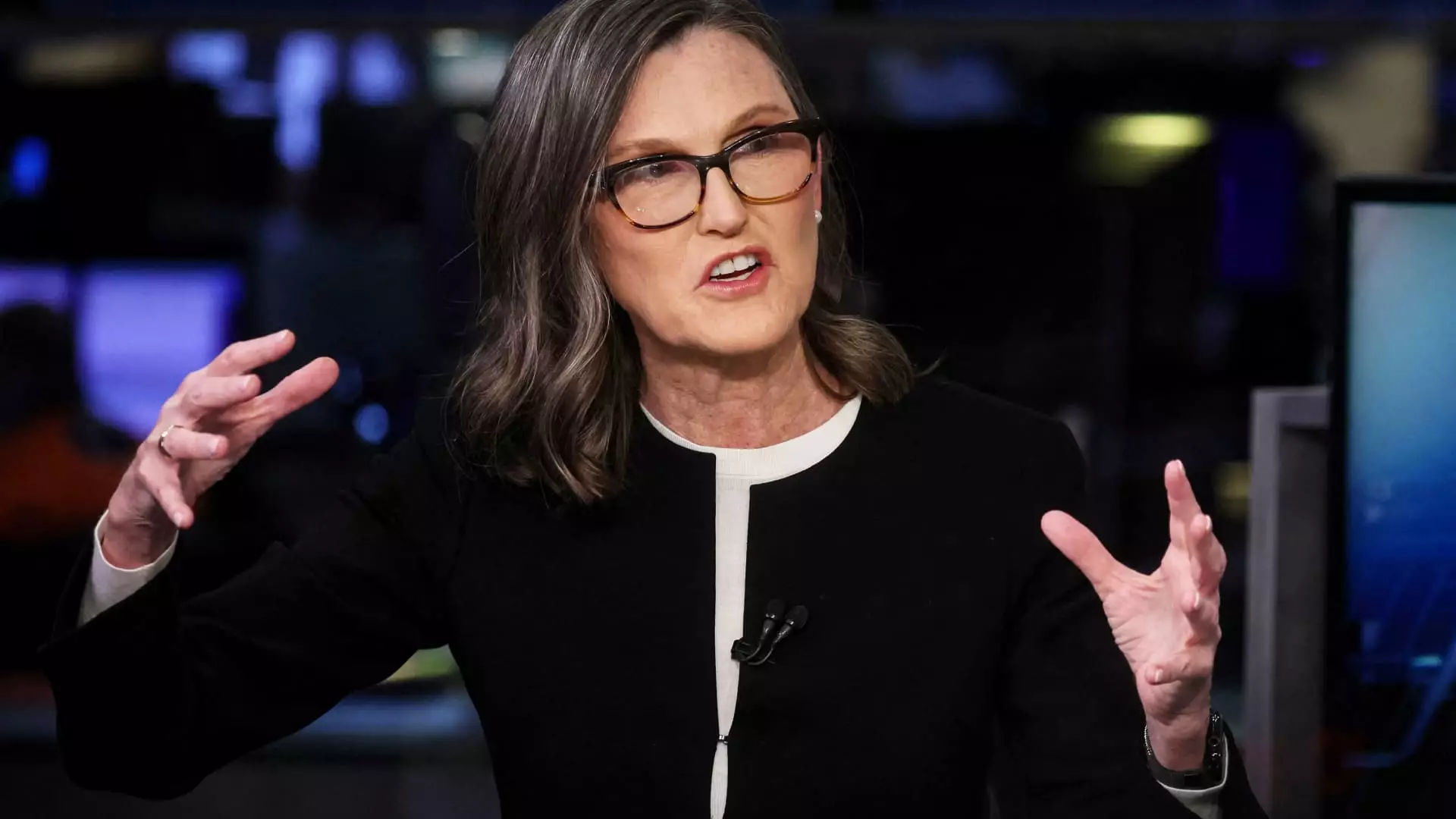Cathie Wood, managing the Ark Innovation ETF (ARKK), has long been a prominent figure in the investment world, renowned for her focus on disruptive technologies. With the recent reelection of Donald Trump, one might expect a surge in investor confidence and cash inflows into her funds. However, despite a noticeable increase in ARKK’s performance—registering a striking 30% rally since Election Day—investor sentiment appears to remain cool. This dichotomy raises critical questions about investor psychology, market dynamics, and the evolving landscape of actively managed funds.
After the election on November 5, the stock market witnessed a robust rally, primarily driven by risks perceived as alleviated under Trump’s leadership. Specifically, much of ARKK’s ascent can be attributed to Tesla, which constitutes about 16.3% of the ETF’s portfolio. Since Trump’s announcement of victory, shares of the electric vehicle giant have surged by approximately 70%. Nevertheless, despite these apparent gains, the outflow of investor capital remains a significant concern.
A staggering $49 million fled ARKK in November, with an additional $24 million in just the first week of December. Over the course of 2024, the fund has seen total outflows exceeding $3 billion, raising questions about its sustainability and long-term attractiveness. This phenomenon is particularly striking in the context of an ETF industry experiencing an unprecedented influx of $1 trillion. Analysts, such as Todd Rosenbluth from TMX VettaFi, suggest that ARKK has lost its appeal as the leading actively managed ETF, a result of investor redemption behavior driven by broader market trends and individual fund performance.
The context is pivotal; investors often gravitate toward funds that are perceived to have momentum. ARKK, which rose to fame during the Covid-19 pandemic—fuelled by bold bets on tech outliers like Zoom and Peloton—has since seen a dramatic downturn, losing nearly 60% of its value from its previous peak in 2021. This prompts a thorough analysis of what has changed in Wood’s narrative and the broader thematic investing landscape.
Despite her funds’ turbulent performance, Wood remains a staunch advocate for innovation, arguing that the possible deregulatory environment ushered in by Trump’s leadership could unleash a wave of technological advancements. She suggests that this new wave has the potential to drive economic growth more substantially than the technological booms seen during the Reagan era. Wood’s convictions will undoubtedly play a vital role in shaping investor perceptions moving forward.
Interestingly, alongside Tesla, other key ARKK holdings have garnered attention; Coinbase has benefitted from a significant rise in crypto prices, boasting an increase of over 80% amid a climate where many speculate that Trump may usher in a more favorable regulatory framework for the cryptocurrency market. Compounding this optimism, stocks like Robinhood—the sixth-largest position in ARKK—have skyrocketed, marking a staggering 213% increase in 2024.
While some holdings have thrived, others in ARKK’s portfolio remain in a historical rut. For instance, while the Nasdaq Composite Index has reached record highs, stocks such as Roku and Pinterest have failed to find their stride, down 9% and 16%, respectively. This disparity illustrates the inherent risks associated with a concentrated investment strategy focused on innovation.
The volatility of individual stocks, weighing down ARKK’s overall performance, poses crucial reflection points for investors who once celebrated the ETF’s disruptive vision. As the landscape continues to shift, Wood’s ability to pivot her strategy in alignment with market realities will determine whether ARKK can reclaim its status as a leader in the innovation-focused investment space.
As we look to the future, it is clear that Wood’s Ark Innovation ETF faces a crossroads. The excitement of technology investing must converge with evolving investor expectations and reactions to market conditions. If Wood can rekindle that early-pandemic fervor through a combination of regulatory optimism and a clear vision for sustained innovation, ARKK could very well find itself back on a growth trajectory. However, without addressing investor fatigue and the allure of other investment opportunities, ARKK may continue its struggle to attract the flows necessary to thrive amid a competitive landscape.
While Trump’s reelection has stimulated some momentum in ARKK, a multitude of factors—investor psychology, stock performance, and regulatory outlook—will play pivotal roles in determining the fund’s future. How Cathie Wood navigates these challenges may define not only the fate of her flagship ETF but also the future approach toward actively managed innovation funds in a rapidly evolving market.

